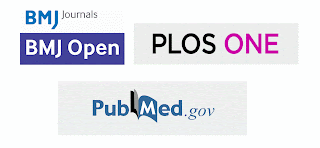Catch member, Dr Steven Ariss, has successfully collaborated with colleagues from the health sector and recently had three papers published in BMJ Open, PLOS ONE and Health & Social Care in the Community.
BMJ Open: Complex programme evaluation of a ‘new care model’ vanguard: a shared commitment to quality improvement in an integrated health and care context
NHS vanguards, under-pressure to perform, required better contracting and data management arrangements with evaluation teams, to ensure that integrated service outcomes could be reported effectively. This communication reflects the experience of evaluating an NHS vanguard and suggests how academic teams can improve capacity for complex programme evaluation of rapid improvements in integrated services. This should be based on a shared commitment to data collection and management. Also, robust knowledge exchange processes can enable systems change and sustainability. The identifying features of the particular site have been withheld.
Please find the paper here.
PLOS One: The identification and treatment of mental health and substance misuse problems in sexual assault services: A systematic review
Specialist sexual assault services, which collect forensic evidence and offer holistic healthcare to people following sexual assault, have been established internationally. In England, these services are called sexual assault referral centres (SARCs). Mental health and substance misuse problems are common among SARC attendees, but little is known about how SARCs should address these needs. This review aims to seek and synthesise evidence regarding approaches to identification and support for mental health and substance misuse problems in SARCs and corresponding services internationally; empirical evidence regarding effective service models; and stakeholders’ views and policy recommendations about optimal SARC practice.
A systematic review was undertaken. PsycINFO, MEDLINE, IBSS and CINAHL were searched from 1975 to August 2018. A web-based search up to December 2018 was also conducted to identify government and expert guidelines on SARCs. Quality assessment and narrative synthesis were conducted.
We included 107 papers. We found that identification based on clinical judgement, supportive counselling and referral to other services without active follow-up were the most common approaches. Evaluations of interventions for post-rape psychopathology in attendees of sexual assault services provided mixed evidence of moderate quality. Very little evidence was found regarding interventions or support for substance misuse. Stakeholders emphasised the importance of accessibility, flexibility, continuity of care, in-house psychological support, staff trained in mental health as well as specialist support for LGBT groups and people with learning difficulties. Guidelines suggested that SARCs should assess for mental health and substance misuse and provide in-house emotional support, but the extent and nature of support were not clarified. Both stakeholders and guidelines recommended close partnership between sexual assault services and local counselling services.
This review suggests that there is big variation in the mental health and substance misuse provision both across and within different sexual assault service models. We found no robust evidence about how sexual assault services can achieve good mental health and substance misuse outcomes for service users. Clearer guidance for service planners and commissioners, informed by robust evidence about optimal service organisations and pathways, is required.
Please find the paper here.
Health and Social Care in the Community: Impact of social prescribing to address loneliness: A mixed methods evaluation of a national social prescribing programme
Loneliness is considered a global public health issue because of its detrimental impact on physical and mental health but little is known about which interventions can reduce loneliness. One potential intervention is social prescribing, where a link worker helps service-users to access appropriate support such as community activities and social groups. Some qualitative studies have identified that social prescribing may help to reduce service-users’ loneliness. Given this, the British Red Cross (a third sector organisation) developed and delivered a national social prescribing service in the United Kingdom to support people who were experiencing, or at risk of, loneliness. Service-users could receive up to 12 weeks of support from a link worker. A mixed methods study was conducted to understand the impact of the support on loneliness, and to identify the facilitators and barriers to service delivery. The study included: (a) analysis of quantitative data collected routinely between May 2017 and December 2019 (n = 10,643) including pre-post analysis of UCLA data (n = 2,250) and matched comparator work to measure changes in loneliness; (b) semi-structured interviews with service-users, link workers and volunteers (n = 60) and (c) a Social Return on Investment Analysis. The majority of the service-users (72.6%, n = 1634/2250) felt less lonely after receiving support. The mean change in UCLA score was -1.84 (95% CI -1.91 to -1.77) of a maximum change of 6.00 (decrease indicates an improvement). Additional benefits included improved wellbeing, increased confidence and life having more purpose. The base case analysis estimated a social return on investment of £3.42 per £1 invested in the service. Having skilled link workers and support tailored to individual needs appeared key. However, challenges included utilising volunteers, meeting some service-users’ needs in relation to signposting and sustaining improvements in loneliness. Nonetheless, the service appeared successful in supporting service-users experiencing loneliness.
Please find the paper here.


No comments:
Post a Comment